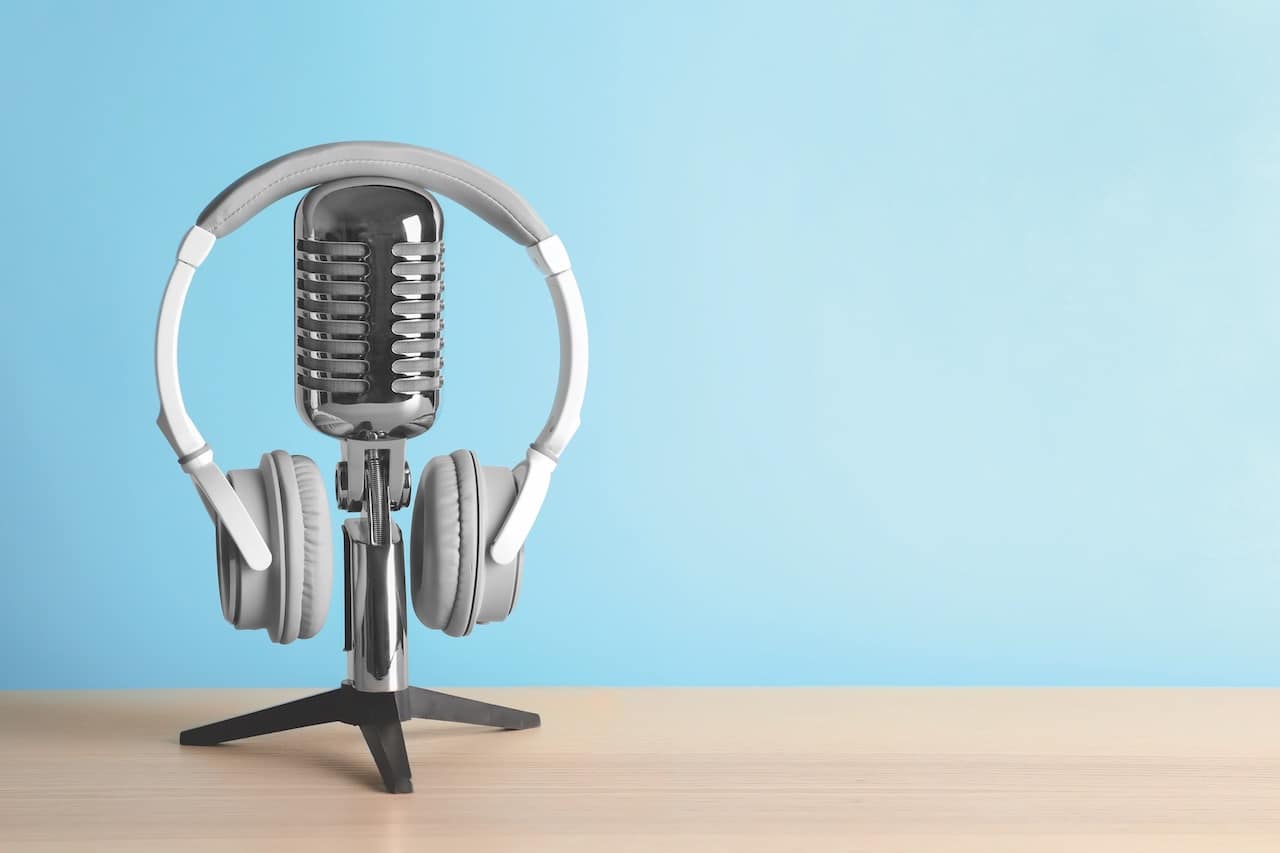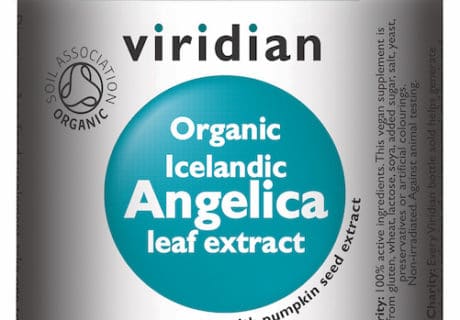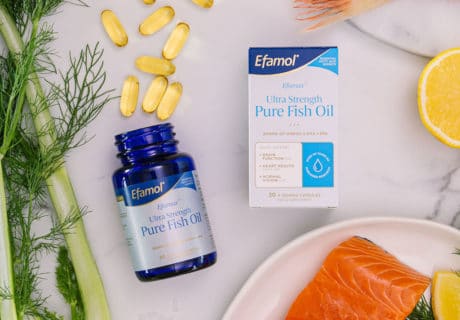If you have an appetite for podcasts and you’re immersed in the world of natural beauty, you’re bound to have come across Green Beauty Conversations,, which unpicks the philosophy of the sector. Here, Rosie Greenaway, listens in live with Gemma Ortega Perez, former Formula Botanica relationship manager, to learn how its popular audio series came about
Whose idea was the podcast series?
It was my idea. I listen a lot to Katy Bowman, a bio-mechanist, who’s always talking about moving our bodies more … about how podcasts are a great way of absorbing the media while on the go. You don’t have to be sitting down in your kitchen, you can be walking in the forest. So I said to Lorraine Dallmeier: “Our target audience is women who are well educated, very busy, juggling different careers … they’re time-poor and this means that they could listen on their commute, out jogging, in the gym, on their lunch break. It’s easy for them to digest the content.” We had a lot to say about natural cosmetics and we didn’t have a way of doing that.
Could you have achieved that via your blog?
I think the conversational aspect … wouldn’t come across on a blog. We could interview [subjects] on a blog but we’d just have excerpts of what they’re saying rather than their humour, their personality. It took almost a year to get it together. I did a short course on how to launch a podcast. I had to create a strategy and execute it. We had to iron out a few things: where to host it, what to call it – it took ages to decide, even though it seems like a simple name. I wanted to have it on Google Player but they didn’t support podcasts in the UK and Europe … so we had to figure out where we could host it for Android sites; we chose Stitcher and obviously iPlayer. Lorraine wanted it on YouTube; we actually get a lot of listeners from YouTube. So it’s been quite a journey.
Apart from educating listeners, what were your other objectives?
We wanted to stimulate a discussion around pain points within green beauty – things like ‘What does natural mean?’, as there’s no proper definition yet. We wanted to tackle issues we felt related to greenwashing, like terminology. I think the second episode was ‘What are chemical-free cosmetics?’. That term is not something we use, but we wanted to stop it being vilified; people are just trying to convey something their audience will understand. So we wanted to have a conversation where we could explore both sides of these issues. We wanted to interview – and help promote – people who were doing innovative things, and share that with our followers to give them inspiration.
We wanted to stimulate a discussion around pain points within green beauty
Talk us through the podcast production process
There are a lot of technical considerations – quite a lot of prep. First we identify a topic, find a guest. Now it’s more popular, people approach us, which is nice. You negotiate the topic. I then look at questions we would cover; although we don’t want the podcast to be heavily scripted, we do want a framework. If you don’t, people start talking about something you might not want covered! We’re not normally into censorship … it’s interesting to have controversial opinions, however you don’t want an entire episode to be hijacked, especially when you have an objective. Some people are naturals [but] having a guide of questions also helps guests prepare. I speak to them one-on-one before we record, to figure out what sort of a person they are. Some need a lot of prompting to expand on answers.
Then we set a date, get head shots and bios, make sure they know what happens during the recording – where they should be sat (a quiet environment), they need good internet [and] headphones. It needs to be an optimal recording environment – ideally not ‘hot-spotting’ on top of a mountain! I try to batch-record as many as I can in one day, which is incredibly helpful.
Is it challenging to record remotely?
We record via SquadCast – a system that has video, so I can see what they’re doing. Some people get super nervous … and just stop talking. It’s important to read the person’s body language and coax the answers out of them. Sometimes I’ll interject if I need an explanation, and sometimes I do ask off-script questions, but I also ask them to tell me if there’s something they specifically don’t want to talk about. Recording takes about an hour, then there’s a debrief. I download the audio files and send them off to an editor with the intro and outro. We use an editor because it takes a long time, especially if you’re not experienced – and none of us are. I do know people who edit themselves. Those people probably publish with less frequency; we do ours fortnightly.
Post-editing, what happens next?
They send it back to me in an edited Dropbox folder. I normally listen to make sure it’s okay, and then I send it to the person who does the podcast notes. We then ask Lorraine to do images for the podcast, then put it into another programme called Libsyn [to] format it. You publish that and it gives you a code – you embed that code into your blog post and then it’s live. There are quite a few steps, and it is labour intensive.
Going forward I think we want to do more debate. I want to get a few more opposing viewpoints
Which topics would you still like to cover?
Going forward I think we want to do more debate. I want to get a few more opposing viewpoints. For instance, CBD: what is the future of it? Vegan skincare: should you be vegan to make vegan skincare? Clean beauty: what is it? I think people get confused by what it means. So we want to have those conversations.
Have any interviews been particularly illuminating?
We did one on cosmetic regulations, which was really popular because it is complicated.
There was a really interesting one on CBD with Samir Juneja, from CBD of London. He talked about function and how he learnt the science about it. Robert Tisserand’s [podcast] on essential oil safety was great.
My other favourite one was with Karen Gilbert on scent. I think it’s something that people sometimes overlook. She talked about the basics of how scent functions psychologically.
I also did one with Dr Sarah Villafranco of Osmia Organic. It was an incredibly refreshing interview from someone who is a medical doctor and decided to start an organic skincare brand. There are a lot of people within our community who have high-profile careers and want to stop and do something else, who come under a lot of scrutiny for that. She answered so honestly and openly, and explained her struggles – how she loved medicine but how difficult she found certain aspects of it. She made me think about the myth of overnight success. I think it would be very relatable for people who are thinking about quitting and doing something else.
We did another popular one with Gemma Harling of Lumi Consultancy – she used to be a buyer for Superdrug, and she did a ‘How to engage with retailers’ podcast. She basically put together a workbook for people and said, “If you work through this and you take my advice, then you will probably get at least a reply to your email from some of the retailers.”
Who is on your beauty podcast bucket list?
Jo Jones – she started the Beauty Bank with Sali Hughes. She’s knowledgeable, funny – those people make the best guests. I’d love to have her giving a no-nonsense guide to PR; she’s very straight-talking. She’s worked in beauty PR for years, with big brands, and has a real understanding of the market. She’d be brilliant. She speaks about a topic many people struggle with – they don’t have a budget for PR, they have no idea how to do it themselves. Some interesting no-nonsense tips could be really good.
What it has done is set us apart as a thought leader
What does the podcast’s future look like?
I think the ethos will continue. It’s something that Lorraine and I decided together; it’s very much a Formula Botanica ethos. As it’s become popular we get more and more people wanting to come on it now, but they don’t always understand the ethos, so they’re not the right fit. A lot of brands want to promote themselves; actually, the audience doesn’t engage with that unless the brand founder has something very specific to talk about. People are interested in … the wider conversation.
Do you think the podcasts have generated discussion?
Yes! It definitely contributes. At Natural & Organic Products Europe someone came up to me and said, “Are you from the Green Beauty Conversations podcast? I’ve never seen you but I know your voice!” They were starting a brand and had listened to the branding series we’d done, to try and avoid some of the pitfalls. People have started to see us as a directory, which is quite interesting; I don’t think we’d thought of that side. When we went to Indie Beauty Expo there were people there who said, “I listen to your podcast all the time; that’s how I look for brands.”
Has it led to more applications to the school?
That’s an interesting one. I think it probably has, broadly. What it has done is set us apart as a thought leader, and that’s another one of the objectives.
You can download the entire series of Green Beauty Conversations via iTunes and Stitcher, or listen on YouTube. For any queries about the podcast, please contact Formula Botanica: hello@ formulabotanica.com





